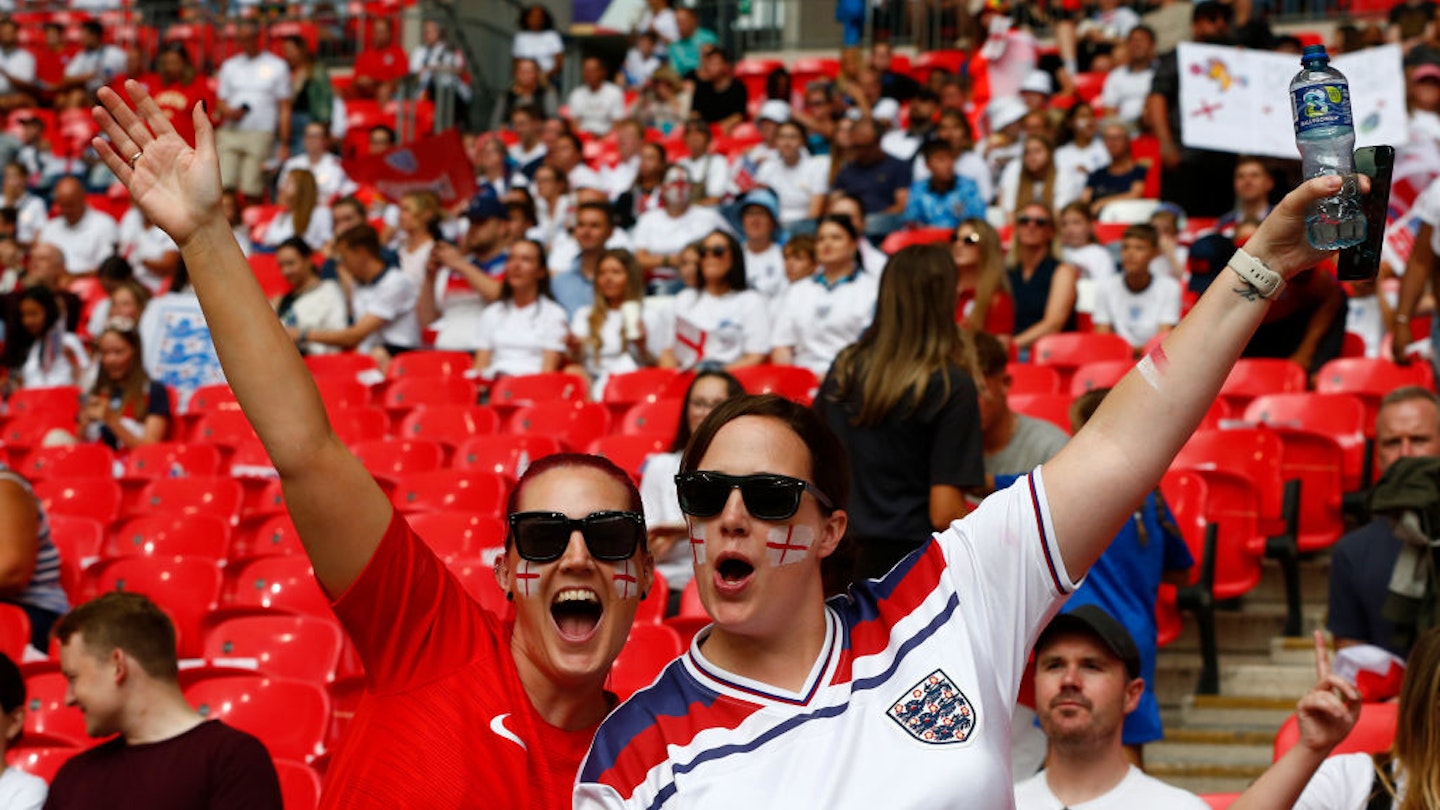Of the 195 countries in the world, there are eleven places where being gay is punishable by death. And Qatar, the Middle Eastern country FIFA’s Congress for some reason voted to host fans and athletes for the football World Cup 2022, is one of them.
‘Please do be respectful of the host nation,’ the UK’s secretary of State for Foreign, Commonwealth and Development affairs,’ James Cleverly, horrendously advised gay fans planning to visit Qatar between 20 November to 18 December for the tournament this winter. ‘I think with a little bit of flex and compromise at both ends, it can be a safe, secure and exciting World Cup,’ he claimed.
Days later, horrifying reports emerged that gay people are being ‘hunted’ in Qatar’s capital of Doha. One Filipino man told iNews he’d been lured to a hotel room through a dating app where Qatari officials allegedly raped him one by one before arresting and deporting him—many UK football fans understandably questioned how they were expected to feel safe in a city like this.
‘The overriding feeling was worry. Worry that things were going to go backwards…A huge worry for safety of fans and a lack of representation,’ Football Beyond Borders Project Lead, proud member of the LGBTQ+ community, and First Team Coach at Merseyrail Ladies, 22-year-old Katie Halligan tells Grazia of the ‘upset’ and ‘anger’ she has felt over the 2022 World Cup.
‘There’s no chance I would go,’ she adds. ‘I’m an absolute football nerd…[but] I would never go to a place where I couldn’t be myself and I wouldn’t put money into an economy that I didn’t think was morally right…Over 50% of the people in my life are part of the LGBT community,’ she continues. And I don’t know a single person who’s going.’
‘We preach that football is for everybody but the majority of people who are part of the LGBTQ+ community have gone through years of suffering, anxiety and discrimination,’ Katie says. ‘So, [for Qatar and FIFA] to ask these people who have gone through fear of not being accepted, fear of not being loved, not to be themselves, to ask them to be somebody they’re not and hide away…I think that’s going backwards.
Other than name-calling to spark reaction during matches, Katie says she hasn’t experienced much homophobia in football and acknowledges many female players have been comfortable enough to come out as gay. ‘In women’s football, it’s very accepted,’ she says. ‘I was 15 playing on a women’s team and a lot of the women’s players’ wives would come and watch so I was exposed to different norms.’
In fact, due to the masculine stereotypes that dominate the football many people around Katie presumed her sexual orientation before she even came out: ‘[They] were like “Well obviously you were gonna be [gay]. You always play football at dinner”’ she says.
But for men, the story is opposite and homosexuality is a severe taboo. When 17-year-old Blackpool forward Jake Daniels came out in May, he became the only openly gay male professional footballer in Britain. ‘There was a sense of love, but also shock,’ says Katie. ‘It was a massive moment in history for English football, but there was so much publicity that it might give other people the fear of doing the same.
‘There’s not enough representation for young boys who are part of the LGBTQ community to see that and want to play,’she says. ‘There are boys I teach in schools who are struggling with their sexuality and ask a lot of questions and they’re the ones who don’t want to join in with the football.
‘It’s a sad reality to think about,’ adds Katie, referencing the statistic that one in five young people identify as gay, lesbian or bisexual. ‘There’s a lot of players who will be living in fear.’
Sadly, Katie thinks the extremism of Qatar’s homophobia could have a negative impact on the UK and is already bracing for ‘backhanded homophobic views on social media’ once the World Cup tournament has begun.
‘I feel let down by FIFA that they’ve decided to go ahead there,’ she says. ‘[It means] the people [in the UK] with fixed mindsets and the narrow views will feel validated and [think] that they have a leg to stand on. They’re a small minority but…I just hope that people don’t start to resonate and express their views because it will cause a conflict. It will come down to the World Cup’s accountability.’
According to reports released on Friday, football fans from England and Wales are actually being paid to promote the World Cup 2022 by liking Tweets about the tournament and attending certain events, including the opening ceremony. Seemingly, due to the blatant homophobia, lack of women's rights, and reports of forced labour in Qatar, the tournament has become a shame-tarnished PR nightmare.
‘Practise what you preach,’ Katie advises FIFA. ‘If, as football coaches and mentors of young people and adults we’re supposed to be promoting inclusivity and saying “football is for everybody” then let’s make it for everybody in a safe space and not have fans in fear of their lives going to support their country.’
Grazia has approached FIFA for comment who are yet to respond.
